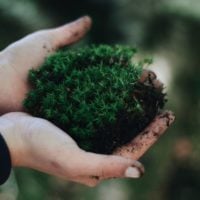Deadline: 8-Apr-24
The Bureau of Land Management Idaho is inviting applications for the Aquatic Resources Management Program to protect and restores riparian and wetland areas, aquatic habitats, and water resources to provide functioning ecosystems for a combination of balanced and diverse uses including fish and wildlife, and for the long-term needs of future generations.
The BLM Idaho (ID) Aquatic Resources Program continues to advance the Department of the Interior’s priorities to address the climate crisis, restore balance on public lands and waters, advance environmental justice, and invest in a clean energy future. Specific BLM Idaho (ID) Aquatic Resources Program focuses to implement the Department priorities include, but are not limited to those actions that: protect biodiversity; restore aquatic resources; increase resistance, resilience, and adaptability to climate change and help leverage natural climate solutions; contribute to conserving at least 30 percent of their lands and waters by the year 2030; engage communities of color, low income families, and rural and indigenous communities to enhance economic opportunities related to aquatics; and use the best science and data available to make decisions.
The BLM Idaho (ID) Aquatic Resources Program’s core functions include:
- Decision Support: Inventory, assess, and monitor aquatic resources to inform their understanding of condition and trend, guide the BLM’s management activities, and assess regulatory compliance.
- Protection: Maintain and protect the chemical, physical, and biological integrity of aquatic resources.
- Restoration: Restore aquatic resources affected by past and present impacts, aquatic invasive species, wildfire, drought, and floods; and increase their resistance, resilience, and adaptability to the impacts of climate change.
- Water Resource Sustainability: Identify the quantity and quality of water required to conserve and restore riparian and wetland areas and aquatic habitats, and secure water rights and protections, so sufficient water is physically and legally available for all public land management purposes.
- Environmental Compliance: Ensure full compliance with applicable federal law, Executive Orders, regulations, and policy and with state laws where such compliance does not conflict with federal law mandates.
- Collaboration: Coordinate, cooperate, and consult with federal, state, tribal, and local governments and other programs, partners, and communities, to foster adaptive approaches to conservation and restoration and implement education and outreach programs.
The BLM Idaho (ID) Aquatic Resources Program has an opportunity to work with partner organizations to assist with:
- Contributing to the above-described Program core functions.
- Combating climate change and habitat loss impacts to aquatic resources.
- Restoring and connecting degraded aquatic resources.
- Increasing ecosystem resistance, resilience, and adaptability to drought, wildfires, and floods.
- Determining acceptable levels of hydrologic and ecological change given BLM management objectives.
- Advancing inventory, assessment, and monitoring activities and tools.
- Preventing the establishment and spread of invasive species.
- Increasing public knowledge of aquatic habitats on BLM managed lands, including with a targeted focus on communities of color, low-income families, and rural and indigenous communities.
Funding Information
- Estimated Total Funding: $1,650,000
- Expected Award Amount
- Maximum Award: $1,500,000
- Minimum Award: $150,000
- Anticipated Award Funding and Dates: Projects cannot be funded for more than a five-year period.
Activities
- Priority activities under this announcement include:
- Aquatic restoration
- Implement monitoring of resource conditions and project monitoring using established and approved monitoring protocols (example: AIM)
Eligibility Criteria
- State governments
- County governments
- City or township governments
- Special district governments
- Independent school districts
- Public and State controlled institutions of higher education
- Native American tribal governments (Federally recognized)
- Public housing authorities/Indian housing authorities
- Native American tribal organizations (other than Federally recognized tribal governments)
- Nonprofits having a 501(c)(3) status with the IRS, other than institutions of higher education
- Nonprofits without 501(c)(3) status with the IRS, other than institutions of higher education
- Private institutions of higher education
- Individuals and For-Profit Organizations are ineligible to apply for awards under this NOFO.
For more information, visit Grants.gov.









































